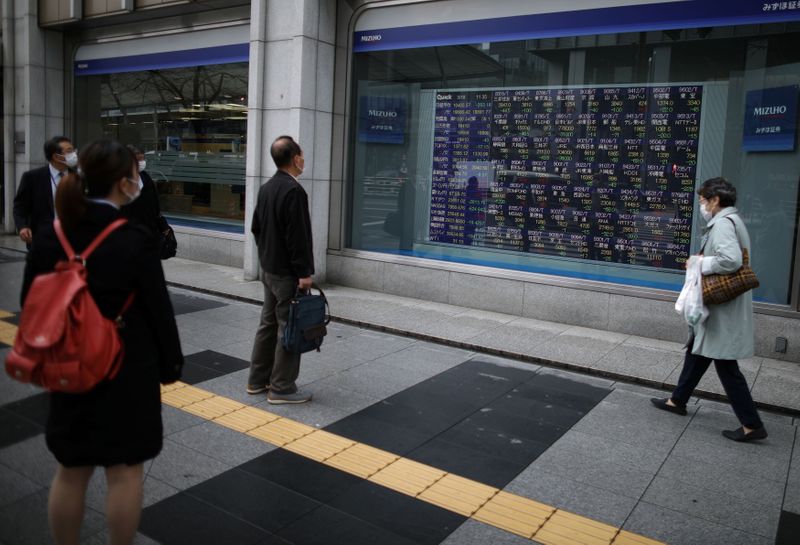By Tommy Wilkes
LONDON (Reuters) - Stocks rallied and the British pound gained on Thursday as Britain and the European Union closed in on a free trade deal and investors wagered on a global economic recovery.
Britain and the EU were hammering out the final details of a narrow post-Brexit trade deal on Thursday with an announcement expected soon, adding to an optimistic mood in the final trading session before the Christmas break.
While a last-minute deal has long been expected, finally removing the possibility of a no-deal outcome 4-1/2 years after Britain voted to leave the trading bloc will come as a relief to markets.
The FTSE 100's initial gains fizzled but the more domestically-focused British mid-cap FTSE 250 index hit its highest levels since February, and UK small caps a record level.
The STOXX 50 added 0.1% while the MSCI world equity index, which tracks shares in 49 countries, rose 0.15% after gains in Asia.
The Brexit trade deal adds to an end-of-year bullish mood in markets, where investors have looked beyond a spike in new COVID-19 cases globally and rising unemployment to the hope that vaccines and more fiscal spending will help spur an economic recovery in 2021.
High on record sums of central bank stimulus, investors have pushed stock markets to new peaks.
Mizuho analysts dubbed it the "mistletoe effect", whereby anticipation of a trade accord meant that "despite being subject to the approval of PM Johnson and EU governments the outline deal was enough" to stoke a rally in markets.
Sterling added another 0.6% to $1.3586, close to its highest level in two years. Still, analysts say the pound's 5% rally since early November means much of the Brexit relief has been priced in to the currency.
"What was billed as an oven ready deal has taken a nearly a year to defrost, but the fact it now seems so much more palatable for both sides is providing some much needed Christmas cheer for investors," said Susannah Streeter, senior investment and markets analyst at Hargreaves Lansdown (LON:HRGV).
THE BRIGHT SIDE
The dollar edged 0.1% lower while the euro held around $1.22.
Wall Street ended mostly higher on Wednesday and futures pointed to a stronger open later on Thursday.
A raft of mixed U.S. economic data this week has showed lower jobless claims and an uptick in new orders for durable goods, but also a pullback in consumer spending, falling personal income and fading sentiment as the holiday shopping season nears its end amid a resurgent COVID-19 pandemic.
Investors appear undeterred from buying stocks and are looking on the bright side.
They also largely shrugged off comments by U.S. President Donald Trump that a nearly $900 billion stimulus bill, agreed upon after months of wrangling in Congress, was "a disgrace" that he might not sign.
"While the pandemic meant lost lives and lost jobs in 2020, a successful vaccine rollout during 2021 is set to be a game changer: governments will gradually lift mobility restrictions and societies will return to most pre-pandemic habits," asset manager Candriam told clients.
"The swift recovery during the third quarter in the Western hemisphere and the ongoing expansion in Asia, where a second infection wave has mostly been avoided, serve as a template for the near future."
Oil prices fell but remained above $50 a barrel in light holiday trade as a drop in U.S. stockpiles spurred demand hopes.
Brent crude futures reversed earlier gains and were last down 38 cents to $50.81 a barrel, while U.S. West Texas Intermediate crude dropped 41 cents to $47.71 per barrel.[O/R]

Gold prices rose marginally, supported by the weaker dollar.